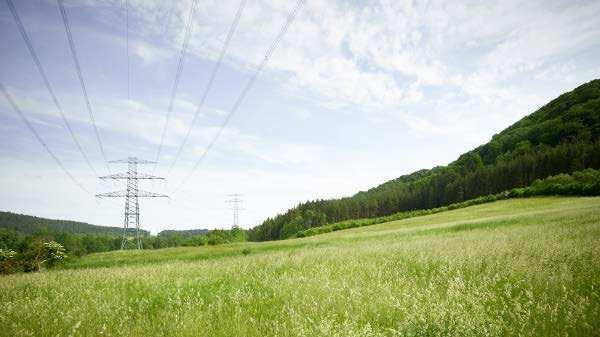
3 minute read
Elia in 2015
from Annual report 2015
by Elia Group
ELIA I N 2 0 1 5
JOINT-VENTURE AGREEMENT FOR NEMO LINK
On Friday, 27 February 2015 Elia and National Grid signed the joint-venture agreement to build the Nemo Link interconnection between Belgium and the United Kingdom. Once completed, the interconnection will provide a capacity of 1,000 MW – enough to supply half a million households. The connection will link the coastal town of Richborough in Kent (UK) with Herdersbrug near Zeebrugge via underwater and underground cables covering a total of 140 km. Electricity will transit between the two countries in both directions.



CHRIS PEETERS, NEW CEO OF ELIA ZANDVLIET: INCREASE IN PEAK IMPORT CAPACITY FROM THE NETHERLANDS
Elia installed a fourth phaseshifting transformer at Zandvliet during the summer of 2015. It will allow peak import capacity on Belgium’s northern border to increase to 3,400 MW from winter 2015-2016 onwards. The new transformer marks the first stage of the Brabo project to upgrade the Belgian electricity grid.
FLOW-BASED MARKET-COUPLING GOES LIVE
On 20 May 2015 Elia and its seven project partners announced the successful launch of the new flow-based method designed to optimise cross-border electricity market efficiency in Central West Europe (CWE). The launch was a key milestone on the road to achieving an integrated electricity market and fell within the framework of the Network Code on Capacity Allocation and Congestion Management, which came into force in August 2015. Appointed by the Board of Directors of Elia System Operator following approval by CREG, Chris Peeters became the new CEO of Elia on 6 July 2015. He takes over from François Cornélis, interim CEO since 14 January 2015 following the departure of Jacques Vandermeiren.


1,229
EMPLOYEES
A NEW ERA IN SETTING UP AUCTION OFFICES
2015 saw the merger of the two auction offices previously responsible for allocating longterm rights on many European borders: the Capacity Allocation Service Company (CASC.EU) and the Central Allocation Office (CAO). Following the merger, the Joint Allocation Office (JAO) was established on 1 September 2015. From early 2016, the JAO has served as the single auction office allocating long-term rights among others primarily on all borders in the Central West Europe and Central East Europe regions.
14
NATIONALITIES


FEDERAL DEVELOPMENT PLAN APPROVED BY THE ENERGY MINISTER
On 18 November 2015, the Belgian Energy Minister approved the federal development plan for the transmission grid for the period 2015-2025 drawn up by Elia. The plan details all of the grid expansion and renovation investments planned by Elia over the next ten years in response to grid needs. The estimates of grid-capacity requirements factor in the findings of both the Prospective Study on Electricity 2030 conducted by the federal energy authorities and the Federal Planning Bureau (FPB), and forecasts set out in the Ten-Year Network Development Plan (TYNDP) drawn up by ENTSO-E.
2016-2019 TARIFFS
On 3 December 2015 CREG approved Elia’s transmission tariffs for the regulatory period 2016-2019. The 2016-2019 tariffs were prepared and calculated on the basis of the tariff methodology approved by CREG in late 2014, and take account, among other things, of the impact of new incentive mechanisms supporting the implementation of investment projects and market-integration programmes. Despite inflation, the share represented by transmission costs will remain largely stable and low in the electricity bill paid by end customers. In fact, the average annual budget approved for the period 20162019 is 2.5% less than that for 2015.
INTEGRATING EUROPEAN ENERGY EXCHANGES
In 2015 the activities of the APX group (including the Belgian electricity exchange Belpex) and EPEX Spot were merged, thereby establishing an electricity exchange operating throughout the Central West Europe region and the United Kingdom. The move will provide market players with a harmonised set of rules and tools to facilitate transactions anywhere in the region.
AIT RECORD
Elia strives to achieve the very highest level of reliability when it comes to security of supply. In 2015, the Average Interruption Time (AIT) – the quantity of energy not supplied expressed as a number of minutes of consumption drawn off from the Elia grid – was 1.23 minutes, the lowest since the company was founded in 2001.







